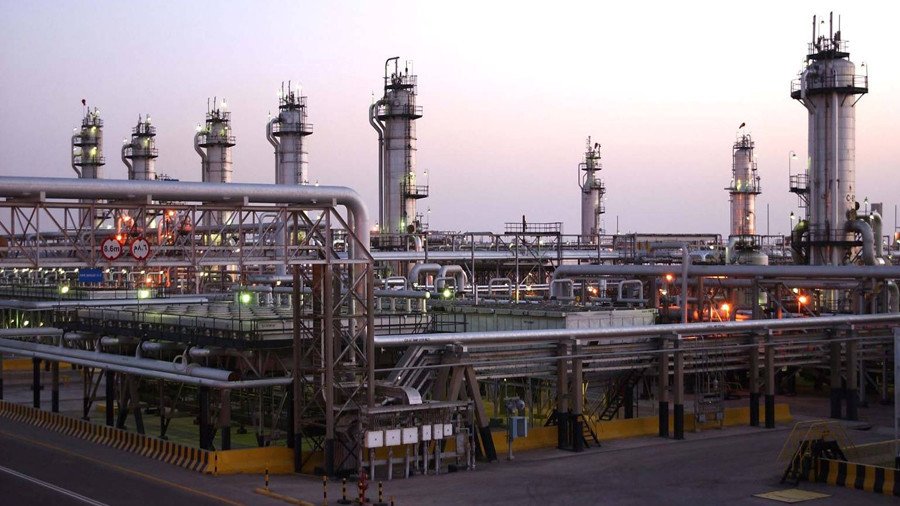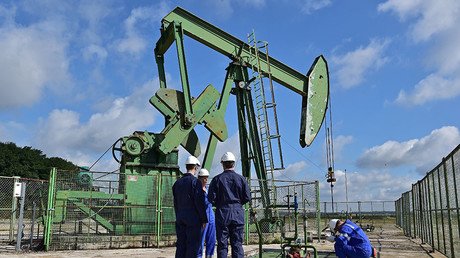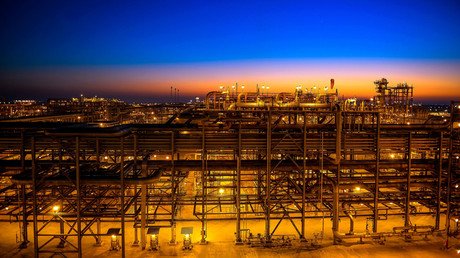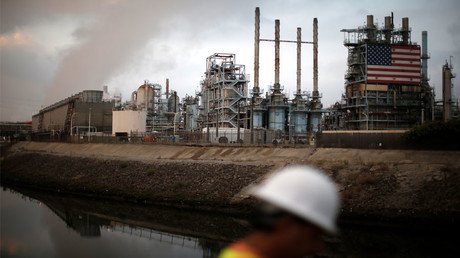Saudis ready to swing oil market into deficit

Saudi Arabia is undergoing a truly seismic shift in its economy, politics, and society, all thanks to the oil price crash of 2014.
Crown Prince Mohammed bin Salman, commonly referred to as MBS, would likely not have had the opportunity to initiate the sweeping changes envisaged in Vision 2030 had it not been for the price collapse. Now, Riyadh needs oil prices to rise as high as possible for the plan to succeed — and is even ready to tip the market into a deficit to that end.
Saudi Arabia used to be OPEC’s most influential price dove, according to Bloomberg’s Grant Smith. Now, the kingdom has adopted a markedly different approach. Saudi Arabia is now focused on pushing prices as high as it can for a very simple reason: Aramco’s IPO.
There are more than enough doubts surrounding the listing of the world’s largest oil company. There’s no certainty about the location of its international listing, and some observers have even argued that Riyadh might opt for a private placement instead so as to ensure the entire 5 percent that is set to be offered will find a buyer.
Aramco’s IPO is crucial for Vision 2030, as the proceeds from the sale will be the fuel that this ambitious plan runs on. While analysts disagree strongly on exactly how much Aramco is worth, it’s clear that the higher oil prices are, the higher the valuation for this oil giant will be.
After a strong rally at the end of 2017 and the beginning of 2018, Brent and WTI have both fallen from their multiyear highs, as the fast growth in US shale production offsets the OPEC cuts. Despite OECD inventories nearing their five-year average, oil prices are refusing to rally. In fact, some analysts are warning that the price slide we saw this month is only the beginning of a much bigger decline.
Riyadh doesn’t want to hear this prior to the IPO. It’s not something the Saudis want to hear in the coming years either, because the price of oil doesn’t just need to be higher now — it needs to remain high in the near to medium term to ensure the Aramco IPO’s success.
So, what’s an oil kingdom to do? Last week, Energy Minister Khalid al-Falih suggested that OPEC should change the way it measures global inventories because the current method produces unreliable data. The current method is based on the five-year average inventory level for the members of the OECD. But that five-year average is a moving target, as OilPrice’s Nick Cunningham recently noted, and in the last five years it has reflected a substantial glut. So, based on the five-year OECD average, the market rebalancing may turn out to be a reduction of the overhang as opposed to an impressive reduction in the global oil glut.
Of course, there’s always the possibility of a conflict in the Middle East driving oil prices up — but geopolitical unrest is far from a guarantee. The recent unconfirmed (and likely to never be confirmed) reports about Saudi Arabia working together with Israel to thwart Iran’s growing influence in the region were followed this week by an open warning from Tel Aviv that it’s ready to confront Iran directly, and Iran issuing an in-kind threat that promised to “level Tel Aviv.” For oil price analysts, these growing tensions can never be ignored.
Another factor that no producer can control is demand. For now, demand forecasts are overwhelmingly rosy, but some observers are wary of too much optimism. Higher prices themselves are a negative factor for demand growth.
So, Saudi Arabia is once again ready to do whatever it takes to push prices up. But in an increasingly complex oil market, it remains to be seen if the oil kingdom can achieve its lofty goals.
This article was originally published on Oilprice.com
















